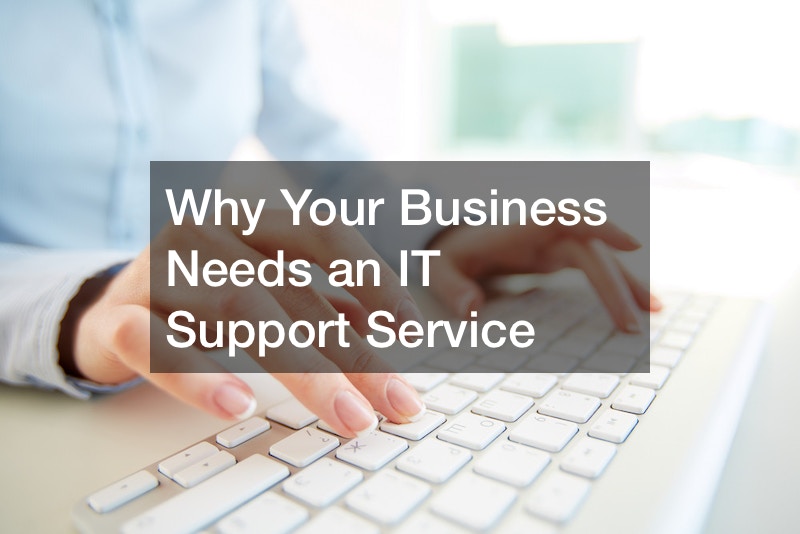
Going into business, whether big or small, involves several risks; most small businesses don’t live long enough to realize success. According to the Bureau of Labor Statistics in the United States, more than 20% of small businesses don’t make it past the first year. As a small business owner, you want to ensure your business doesn’t become a statistic by taking all the necessary precautions to ensure it survives and thrives. The following are tips to guide you when running your small business.
1. Get Financing

If you plan on starting a small business, securing financing is among the startup business solutions you’ll need. A business may seek financing for several reasons; for the capital required to start the small business or as an investment loan. Whichever the case, there are several factors to consider when choosing your source of finances. They include;
The urgency of the funds: If your financial need isn’t too urgent, you can source for different money lenders and get the best deal. On the contrary, if you need money for an immediate expense, you’ll have to settle for the available financing option, regardless of the terms.
The amount of money needed: In as much as many money lending facilities exist, not all financiers can lend large amounts. Therefore, the first thing you need to do is identify the reason you need financing. You can then determine the money you need before choosing a specific lending facility.
The risk involved: Risks are unavoidable in business. However, some risks may be higher than others. If the project that requires financing is too risky, a financier may hesitate to provide you with the funds you need. In such a case, you must attach collateral to get financing.
2. Repay All of Your Debts
As indicated above, you may need to take a loan at some point in your small business. Paying back all monies owed is among the important startup business solutions. According to a publication by Jack Flynn, 48% of all small businesses in America get financing through loans, 70% of which still owe the amounts borrowed.
Paying back business loans offers several benefits. For example, your business gets to save on interest. On the other hand, the consequences of defaulting on a loan repayment include;
Your credit score drops: Just as with personal loans, failure to pay back or late payment of a business loan will result in a drop in your business’ credit score. When you have a ruined credit score, you may not have access to another loan, your insurance premiums may go up, or you may end up paying higher interest rates. Therefore, businesses should
prioritize paying back loans for a better credit score.
Filling for business bankruptcy: This is every business’s worst nightmare. When a business files for bankruptcy, it’ll likely lose its property, like the land on which it operates or company cars. According to Experian, the consequences of filing for bankruptcy can linger on for decades. Therefore, you’ll protect the business name and image when you repay loans in time.
Liquidation of assets: If you had taken out a secured business loan with collateral, the lending financial institution might sell the assets to foreclose the mortgage. Even in unsecured loans, the provider may seize your assets for loan repayment if you issued a lien on your business assets or signed a personal guarantee for an unsecured loan. Paying back your loans on time will help you avoid such issues.
Legal action: In the case of unsecured loans, the lenders impose a hefty late fee at first. If you fail to pay and they can’t recoup the loan amount by selling your assets, they could sue you as the business owner. Such situations can negatively impact business continuity.
3. Have a Technology Plan

Ensuring your business runs on dated technology is among the most important startup business solutions. Technology allows businesses to improve the efficiency of services, systems, and products. Consequently, your small business can cut down on operational costs and grow at a much faster rate. Other notable benefits of contracting a small business It service in your start-up include;
Protection: Ian Thomas indicated that as of December 2022, the FBI raised concern over the number of cybercrimes reported; its Internet Crime Complaint Center recorded over 847,376 complaints majority of which came from small business owners. Incorporating technology in your business plan is a vital aspect you shouldn’t overlook. Take the initiative of sourcing for a local company offering It solutions.
Helps to improve communication: As was evident during the peak of the coronavirus, most businesses closed down. The others still in operation adopted the work-from-home option. Technology facilitates communication within businesses through various online platforms, eliminating the need to be in the same location.
4. File Management

Imagine working in an environment where proper filing systems aren’t in place; If, for example, you’re running a law firm, you would have to dig through heaps of files trying to locate a document needed in court in just a couple of hours. Ensuring you have set up a file management system is among the startup business solutions that ensure efficiency. It helps eliminate clutter, creating a conducive working environment. Other advantages of a proper filing system include;
It helps to keep documents safe: Today, businesses have digitized most of their documents. However, physical documents still exist. As in the example above, the crucial legal document you can’t locate could be the difference between your client winning or losing a case. File management helps ensure documents are safe and easily accessible.
Reduces costs: Some businesses horde no longer relevant documents, forcing them to hire a storage space. File management ensures you get rid of documents that aren’t important, freeing up more space for relevant documents. Consequently, you’ll not need to lease more storage space, saving you money.
5. Equipment
Regardless of the nature of your business, you’ll need a piece or two of equipment. The main purpose of these startup business solutions is to make business operations easier. You may opt to lease or buy equipment; either way, you’ll need to hire moving services to help transport the equipment you acquire to your business location. The factors that you should consider when selecting office equipment include;
Cost: This is one of the major factors that’ll influence your choice of equipment and mode of acquiring it; by leasing or buying. The market has a variety of equipment at different prices. The financial capacity of your business will determine the equipment you choose. For a small business operating in an industry that requires you to update your equipment constantly, leasing is a more viable option than buying.
Multiple uses: For example, you may buy a printer that doubles up as a photocopier; this is much cheaper than buying the two separately. Buying equipment with multiple uses will also help to save on space. Therefore, when selecting a machine for your small business, you should consider the possibility of multiple uses.
6. Schedule Maintenance Services
Maintenance services are an important aspect of any business; they help with quality assurance and may also affect the success of a business. As a business owner, scheduling regular maintenance services for equipment and systems is among the important startup business solutions to help your business succeed. Examples of commercial maintenance services you may hire include;
Plumbing services: Plumbing companies will help ensure a clean water supply and proper wastewater disposal throughout your business. A compromised plumbing system may cause the spread of water-borne diseases, among other issues. Ensure to schedule routine plumbing maintenance services at least once every year.
Electrical service: Most of the systems in your business likely require electricity to run. Therefore, it’s advisable to contract electrician services to ensure all systems and equipment function effectively. If, for example, equipment requires batteries to run, ensure you have enough spares to replace them when the need arises.
Commercial elevator repair services: The pulleys of a commercial elevator are bound to wear and tear over time. Therefore, you should maintain all elevators in your business well by contracting a professional to replace or repair damages as part of startup business solutions. Doing this will help reduce the chances of work-related injury due to a faulty elevator.
7. Waste Management
Managing the waste in your small business not only creates a healthy working environment but is also one of the ways businesses can be socially responsible. You may produce different types of waste depending on the type of business you operate. If you have appliances beyond repair and decide to replace them with new ones, the old appliances become electronic waste. As a business owner, you must hire a trash pickup business offering e waste management solutions to dispose of the waste correctly.
The main reason businesses manage waste is due to the set rules and regulations. According to the 1990 Environmental Protection Act and the 2013 Waste Management Plan, business owners are responsible for the commercial waste produced in their businesses. Failure to meet the set regulations could attract penalties or land you in jail for years. Therefore, most businesses are keen to ensure they comply with the regulations.
8. Outsource or Delegate Tasks
Outsourcing is a controversial topic among business owners; some hate it, while others love it. When Gene Marks, son of the founder of the Marks Group, took over from his dad when he died, he realized it was impossible to do everything by himself. After that, he hired employees to help him and indicated he could make more money with the new help.
Whether small or big, you may need to delegate or outsource services as part of startup business solutions. Doing this will go a long way toward ensuring your business stays afloat. Some of the ways your business would benefit from outsourcing services include;
Helps to cut costs: Cutting costs can help your business realize bigger profit margins. Outsourcing will help a small business avoid large expenses, especially in its initial stages. The money you would have otherwise spent on different services can go into growing the business instead.
Gives access to the latest technology: You might not be able to afford to buy all the necessary equipment for your startup. However, outsourcing is among the startup business solutions that will give you access to all the required equipment at a fraction of the price. It also saves you the costs you would have incurred in the maintenance of the equipment.
9. Create a Strategy for Business Continuity

When starting your small business, you may be skeptical about onboarding more people. Like a mother with her newborn child, you may want to do everything for your ‘new baby’ without asking for help. However, is that a viable plan? What happens if you fall ill and can’t make it to work or your business suffers an arsonist attack?
Of course, these are all worst-case scenarios, but the risk is imminent. Therefore, you must develop a contingency plan as part of startup business solutions to ensure business continuity regardless of the situation. A contingency plan will help your business in the following ways;
Minimize damage: Anticipating a worst-case scenario will help you be better prepared should the risk happen. For example, if you already have an evacuation plan for when or if your business burns down, you can evacuate people more effectively. It’ll also help minimize the damages that may have occurred if anyone got caught up in the fire.
Be more confident: When you have a contingency plan, you can overcome any hurdle. Using the example above, you’ll know what routes are safest to follow when evacuating people; hence the process can run more effectively and efficiently. The plan helps to reduce fear of the unknown between you and your entire team.
In a perfect world, businesses would operate without risks. In reality, though, going into any business comes with its fair share of risks. While you can’t predict the exact risk you’ll encounter in your small business, the above tips will guide you on how to make your small business successful.



